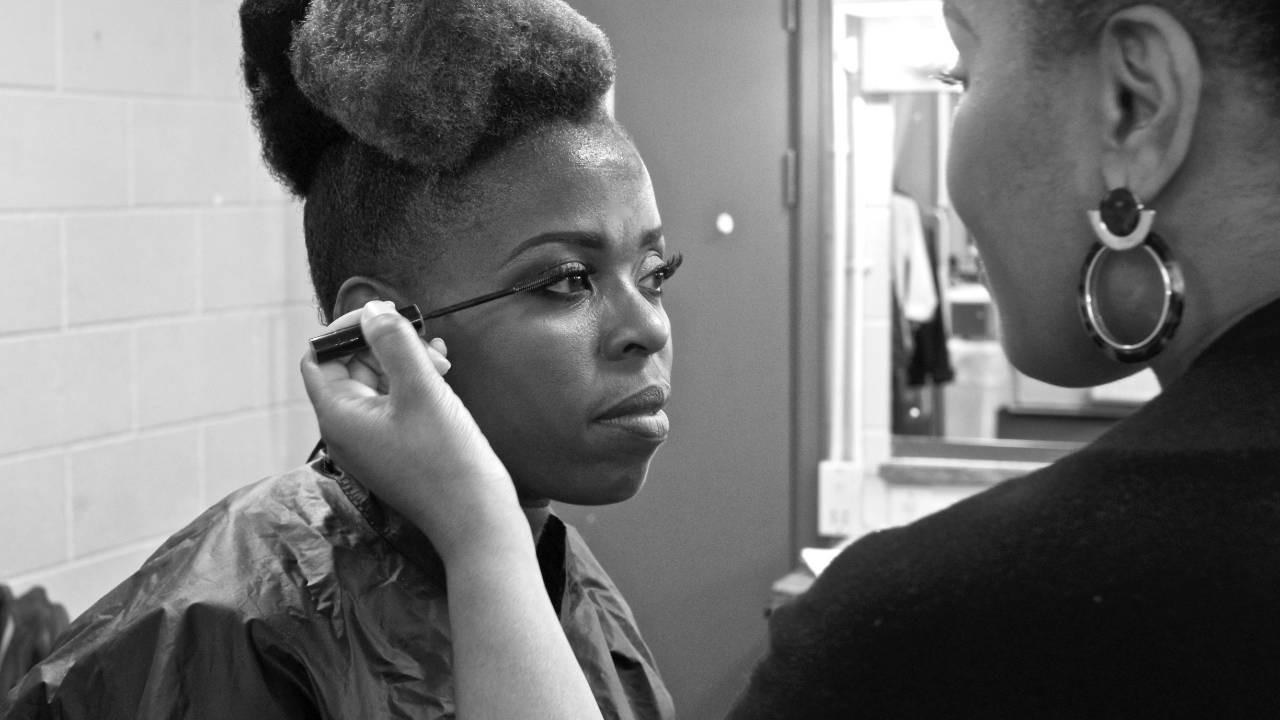A free health service for the Performing Arts sector

Performance art demands the better and the most from creatives. Our physical and mental capabilities are always being tested. We engage our memory to learn the parts of our act and be able to perform them on stage from beginning to end, and we need endurance to withstand it without losing our energy and presence. We require quick problem-solving skills to react accordingly if something goes wrong (and how many things can and will go wrong!), along with good stress and anxiety management. Our craft has an impact in different parts of our body: tendons and joints for dancers, vocal cords and respiratory system for singers, etc. For all of this, a health service specialised in the needs of performing artists is essential for the survival of our industry.
This is where BAPAM, the British Association of Performance Arts Medicine, comes into play. Established in 1984, it is now the largest provider of clinical services to the UK's performing arts sector, supporting everybody from students t...
Modesty aside...

It’s always important to let people know when you have been recognised by an external organisation. Grants, awards, honourable mentions, they all help build your reputation and brand as a creative. They are proof that your talents and contributions have been valued and appreciated by peers, fans and society at large. Never downplay such achievements! Share them on social media, include them in your portfolio and press kit, tell potential clients about it. There is no point in getting shy.
In my case, I was recently featured by the F-List, which is the Directory of Female & Gender Diverse Musicians. The e-mail arrived in my inbox surprisingly, I must say. They were highlighting four women in total, from which they had three. They thought that I would fit really well with the others. I felt honoured!
View this post on Instagram
It quickly became clear during my conversation with them that, albeit I am a me...
Media composers, please answer the Fair Score's survey!

Fair Score is a joint campaign between the Musicians’ Union and The Ivors Academy, which seeks to ensure fair commissioning in media composition. It fights against coercive buyouts, opaque pitching processes, and deals that violate composers’ rights.
In a first survey conducted during 2019, the predecessor of Fair Score found that 35% of the surveyed media composers had accepted buyouts or work-for-hire deals. This means that, instead of receiving a commissioning fee upfront and royalties over time, they got a one-off fee and nothing else. This endangers the livelihood of composers, as they are deprived of long term income sources.
The same survey revealed that 41% of the surveyed composers gave up more mechanical rights than they wanted to, and 64% affirmed they believed the commissioning environment is coercive. This is unsustainable and harmful for the industry, even more now that commissioners count on the threat of generative AI to put pressure on media composers.
It’s importan...
Melody's words about Time For My Music

Today, it’s Melody’s turn to be under the spotlight. She’s a featured vocalist with the Notebenders big band, whose voice has been praised for being smooth and angelic on the high notes when singing classical songs and jazz.
During the Evening Showcase last year, she had this to say about Time For My Music:
[…] Time For My Music is like a sisterhood, a fellowship. It’s togetherness, a way to put ourselves out in the world as musicians together.
[…] Millicent has a wonderful gift, a very open heart. She’s very patient with us. I can see that she gives, she goes beyond the mile, many more times than that. I’m truly grateful, also, for the support that she receives in doing this from the family, and for the support of the group. It’s one of the reasons I’m standing here, and I’d like to thank Patricia because, when I started to meet up with the community bands and the Notebenders, it was Patricia who told me about Cafemnee, which was a forerunner to Time For My Music. So thank you a
...
UK government must address lack of streaming royalties

Players of over 20 orchestras across the UK have joined forces with the Musicians Union to demand that the government addresses the lack of streaming royalties. While streaming services have made music more accessible than ever, most of the money that they earn never reaches the people who perform the music. This is a particularly harrowing issue with non-featured musicians, including session and orchestral players, as the viola player Rachel Bolt explains in this reel:
View this post on Instagram
The Musicians Union has assessed that the solution lies on updating the copyright law. As it currently stands, streaming services must give part of their revenue to copyright owners, who are mainly record labels and publishers. Changing it in a way that guarantees equitable remuneration for streaming income would give musicians their due revenue back, without making the State incur in additional expenses.
You can read ...
Make your opinion count by responding to the Curriculum and Assessment Review

The Government is running an independent Curriculum and Assessment Review with the aim to gather perspectives and evidence that can help refresh and update the national curriculum and statutory assessment system in England. The Musicians' Union is responding to it on behalf of its members, submitting arguments in favour of arts and music education, and you can do the same by answering to the review online before Friday, 22nd November.
The Review has a big scope, and it's looking for solid evidence and potential solutions to the main problems faced in the education of children and teenagers aged 5 to 19. If you feel that you don’t have an informed opinion to contribute to the discussion regarding one specific section of this massive enterprise, it's alright: you can answer only to what matters to you, and your opinion will be taken into account anyway.
The Musicians' Union has highlighted the sections more relevant to arts and music education, and has some advice on how to respond to ...
Time For My Music's evening showcase was a roaring success!

The Time For My Music evening showcase on Tuesday 29th October was fabulous. The women stepped up to the mark and delivered a performance that blew everybody's minds. They were glamorous and classy, engaging the audience (a full house of it!) to share hours of great music played with their hearts and souls. Truly, the event couldn't possibly have gone better.
The significance of this achievement goes beyond the stage. The women didn't only perform at the evening showcase, but they actually organised it and produced it. They learned what's needed to put on a show, who to contact, and how to go about things. Using her experience producing the Not Just Jazz shows, Millicent guided them and provided them with the necessary skills so they can do it again by themselves in the future, being transparent with them in regard to location options and regulations, costs, etc.
The show is over, but the learning continues. There are things that still need to be taken care of, evaluations to do, an...
Louise Dengate takes you to the world of Gospel Choirs

If you're a listener of our podcast Success Beyond The Score, you might be well acquainted with the work of Louise Dengate. A native of Stratford upon Avon, she's a singer, songwriter, vocal coach, choir director and music agent. Her extensive experience in all these roles has given her a lot of insight and knowledge, which combined with her love for music and her genuine interest for helping others in their music journey, make her a wonderful tutor and teacher.
On Saturday 19th October 2024 at the Stratford Methodist Church, you'll have the chance to experience this first hand by attending Louise's Gospel Choir Workshop with members of her Crystal Gospel Choir. For just £80.00 per person, you'll get three hours of intense immersion, learning vocal techniques, harmony work and performance skills. It's a very good opportunity and there's not a lot of time left, so be sure of telling your friends or colleagues who might be interested, and book your place(s) following this link.
Tickets for the ‘Time For My Music’ evening showcase are available!

We have a date and a place! On Tuesday 29th October 2024, the women of Time For My Music will perform live at the MAC Theatre of Birmingham. Get ready for an evening of jazz, soul, gospel and reggae by these accomplished emerging musicians, in a show that’s sure to warm your heart in the midst of these progressively colder autumn days.

Tickets are only £10.00 plus a small booking fee. If you are part of a group of five people or more, please send an e-mail to info@millicentstephenson.com in order to arrange a discount
Don't forget to share this information with your friends and family. We're looking forward to seeing you all at the theatre!
Ideas to fund the Time For My Music concert

Our online community for emerging musicians, Time For My Music, is preparing their first ever live concert in the city of Birmingham, UK. It’s been an exciting and inspiring process so far. The participants have brought a lot of energy, ideas and dreams to the table. For example, they’ve suggested music pieces that they’ve always wanted to have in their repertoire. Without revealing the whole set list, we can say that Stevie Wonder’s Superstition and Bob Marley’s One Love are among the selected songs. They’re sounding great already!
In regard to the date, we’re aiming for some time in November. Besides the music, though, there are many things we have to figure out first. One of them is how to pay for the expenses of the event. While we will sell tickets, we’d only be able to cover all the costs if we did so for a price that we consider too high. This means that we need to compliment ticket sales with other forms of funding.
To start looking for a solution, our director Millicent atte...